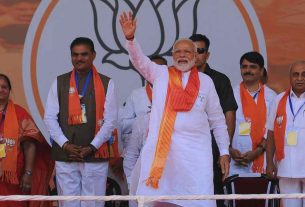Sat 18 April 2020:
Superstar athletes, such as professional soccer players in the English Premier League, have been subjected to some intense public pressure to take large pay cuts. The level of pressure has been much higher than that faced by other millionaire professionals, such as lawyers or bankers. Why have athletes been seemingly singled out?
The obvious starting point is that they are doing almost zero work: their games are canceled, they can’t train in their facilities, and they can’t even go outside for a run! In contrast, bankers, lawyers and engineers are still working to some extent. In the case of doctors, who are some of the highest earners in society, they are working extra hard, making the LeBron Jameses and Cristiano Ronaldos of this world look like they are simply living off the fat of the land.
An additional reason is that superstar athletes work with a lot of normal people who earn average salaries (janitors, groundskeepers, physiotherapists), who have been furloughed or laid off due to the suspension of professional sports. Professional athletes continuing to earn millions goes against the social norm that people should look out for those in their tribe or community. People might feel the same way about executives in Walmart or Coca Cola laying normal workers off, but they don’t even know the executives’ names, nor do they ever see them on TV or YouTube; out of sight, out of mind!
A big part of a superstar athlete’s salary is the result of their fame, which in turn is the result of the psychological bond that exists between star players and their fans: people want to wear a hat worn by their favorite player, and to eat the same chocolate bar, because they like to mimic their heroes, and draw themselves closer to them. That connection is a double-edged sword: just as we vicariously celebrate star athletes’ success, we also feel angry if they do not share in our struggles. By contrast, we feel no affinity for the millionaire trader in JP Morgan, or the famous architect who earns millions for each commission; and so we don’t demand that they sympathize with us by sacrificing their salaries.
Then there is the perception of merit, and the fairness of labor market outcomes. Ordinary people often scoff at the amounts lawyers or plastic surgeons earn, but they do understand three key attributes of such professionals.
First, they studied many years to get these jobs, and had to work very hard to get accepted into the best programs. By contrast, superstar athletes are often earning hundreds of thousands of dollars while they are still teenagers, so even if they did train hard, the total effort (in terms of hours) is considerably lower than that of a top lawyer; plus, training as an athlete seems like much more fun than training to be a lawyer.
Second, because of the high educational qualifications that other professionals have, they plausibly have other career options available that would also give them high salaries. By contrast, the dire financial straits that often follow the conclusion of an athlete’s sports career confirm what most people suspect, which is that were it not for their talents as an athletes, they would be in the same shoes as everyone else. This good fortune, referred to as “rents” by economists, breeds resentment.
Third, building on this, ordinary people feel as though they could actually do a professional athlete’s job, since many obsessively play the same sports. Perhaps they kid themselves that an injury or short-sighted scouts are the only reason they were denied a career as a sportsperson, adding to the sense that the superstar athlete is lucky, and should show more gratitude. By contrast, most people do not pretend to know how to pilot a civilian airplane full of 400 passengers, or how to discover a vaccine for the coronavirus.
To give them their due, some Premier League soccer players did launch an initiative to support healthcare workers in the UK, and many superstars across the world have made millions of dollars of financial and in-kind donations to charitable causes, even before any public pressure was directed toward them.

Omar Al-Ubaydli (@omareconomics) is a researcher at Derasat, Bahrain
The statements, views and opinions expressed in this column are solely those of the author and do not necessarily represent those of Independent Press.
Think your friends would be interested? Share this story!





